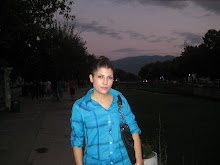a)Nadica- Nadi[c]a ([N] voiced +V alveolar nasal)
Zecevic- Zɛt∫ɛvit∫ ([Z] voiced +V alveolar fricative)
b)There are a lot of different languages, and that means a lot of different sounds. One language can be distinguished from another language with the sound in the language. We produce sounds with our vocal cords and different parts of our mouth. So we are familiar with the sounds that are consisted in our own language. Sometimes when we hear a sound that we don’t know and we never used in our language than it is a little bit difficult to pronounce it. That is why when I say my name to somebody that has never heard it before, it is hard for that person to pronounce my name. I think my last name is easier to pronounce because the sounds are consisted in the English language, but my name is hard for the English speakers to pronounce it. That is because the sound [C] in my language is pronounced differently and that sound is not consisted in the English language. In the English language the sound [C] is pronounced like in the word cat.
c)I do have difficulty pronouncing some names and things. For example the word water, the English speakers pronounce it with the sound “d”. I try but I always pronounce it with the sound “t”.
"The hidden Signs"
15 years ago


1 comment:
I understand what you are talking about. The rules of English is very hard to understand because it constantly changing and every word is pronounced differently even though they are sometime spelled the same but just with one letter different. I would like to say that the way you are pronouncing water with a 't' is the correct way of saying it but in language is there really a correct way of pronouncing a word. Every person has his or her own dilect and because our vocal tracts are all different no one word is pronounced the same.
Post a Comment